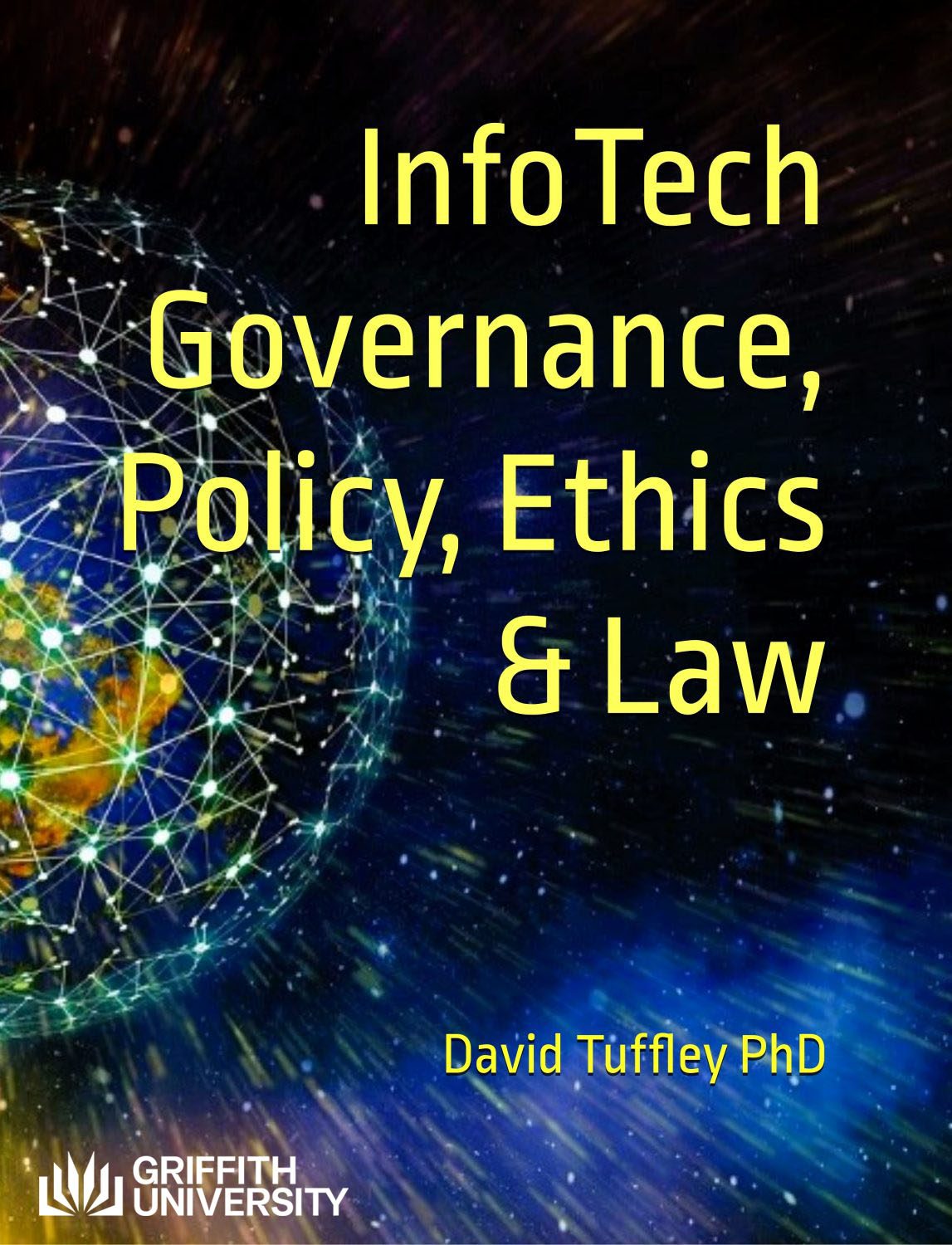Book Title: InfoTech Governance, Policy, Ethics & Law

Book Description: A comprehensive guide to IT governance, policy, ethics and law for students, practitioners and researchers. Covers the latest developments and best practices in the field, with a focus on the ethical, legal and social implications of IT. The textbook is divided into nine chapters, each covering a key topic in IT governance, policy, ethics and law.
Contents
Book Information
Book Description
Introducing: “InfoTech Governance, Policy, Ethics & Law” by Dr. David Tuffley
This textbook is a comprehensive guide to IT governance, policy, ethics and law for students, practitioners and researchers. It covers the latest developments and best practices in the field, with a focus on the ethical, legal and social implications of IT. The textbook is divided into nine chapters, each covering a key topic in IT governance, policy, ethics and law. The chapters are:
Chapter 1: IT Governance Frameworks. This chapter introduces the concept and importance of IT governance, and reviews the main frameworks and standards for IT compliance and data retention.
Chapter 2: Cybersecurity and Data Protection. This chapter explores the challenges and opportunities of cybersecurity and data protection in the digital age, and discusses the international and national regulations and guidelines for privacy, data transfers, data breach notification, AI accountability and ethical hacking.
Chapter 3: Cloud Computing and Outsourcing. This chapter examines the benefits and risks of cloud computing and outsourcing, and explains the contractual and legal issues involved in these arrangements.
Chapter 4: Digital Ethics and Responsible AI. This chapter analyzes the ethical principles and values that should guide the design, development and use of digital technologies and AI, and addresses the topics of algorithm bias, emerging technologies, whistleblower protection and AI art.
Chapter 5: Intellectual Property and Copyright. This chapter explains the basic concepts and types of intellectual property rights, and explores the challenges and solutions for digital rights management, open-source software licensing and fair use.
Chapter 6: E-Gov and Digital Transformation. This chapter describes the role and impact of IT in government and public administration, and highlights the best practices and case studies of e-government, citizen engagement, smart cities and remote work.
Chapter 7: Impact of IT on Society. This chapter assesses the positive and negative effects of IT on society, culture and human behavior, and covers the topics of social media, technology for social good, accessibility and inclusion.
Chapter 8: Employee IT Usage and Policies. This chapter discusses the rights and responsibilities of employees and employers regarding IT usage in the workplace, and provides guidance on how to create effective IT policies that balance privacy, security and productivity.
Chapter 9: IoT Security and Privacy. This chapter explores the security and privacy issues related to the Internet of Things (IoT), and covers the topics of IoT ethics, biometric data usage, data localization and sovereignty.
The textbook is written in plain English to make it accessible to a wide audience, without compromising on accuracy or rigor. It also includes learning objectives, key terms, review questions, case studies, exercises and references at the end of each chapter to enhance the learning experience.
License
InfoTech Governance, Policy, Ethics & Law Copyright © 2025 by David Tuffley is licensed under a Creative Commons Attribution-NonCommercial 4.0 International License, except where otherwise noted.
Subject
Computing and Information Technology

